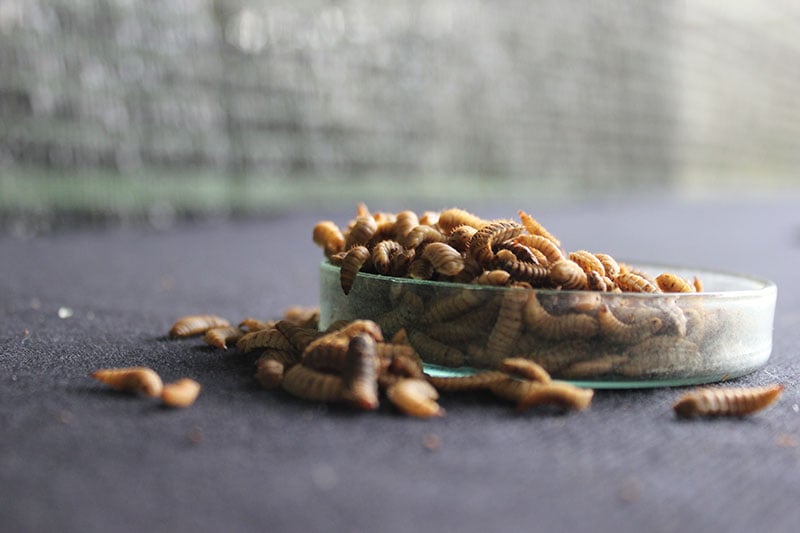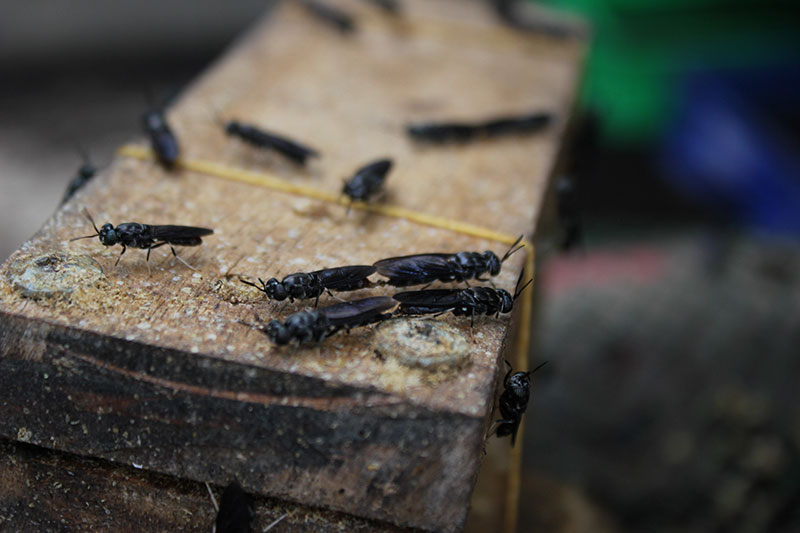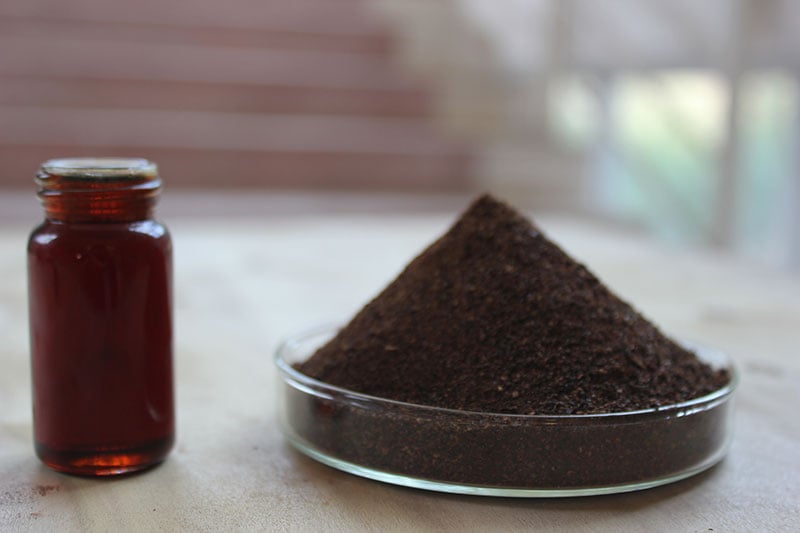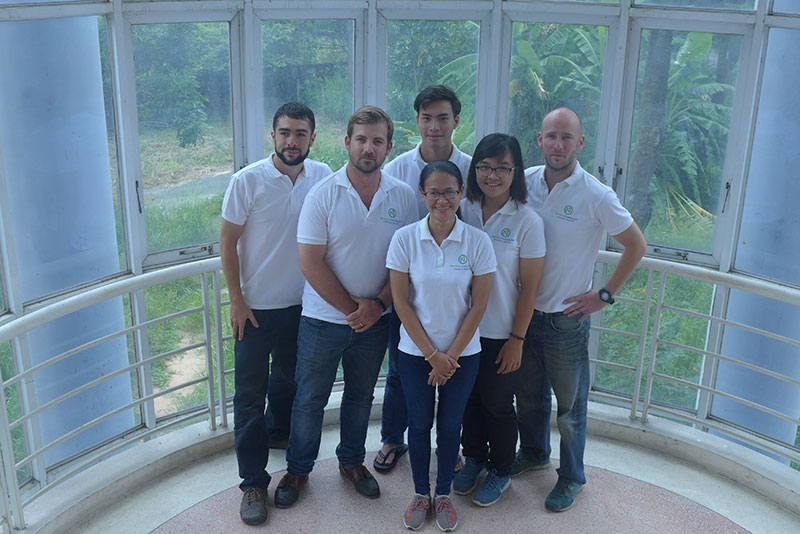Saigon-based biotechnology company Nutrition Technologies explains how insect farming could change the way we eat.
Vietnam has so much to offer: the food, the untouched natural beauty, the sleepless cities, the coffee and, of course, the black soldier flies. Whilst that last gem may not be a buzzword on many visitor lists, thanks to the research of an innovative biotechnology company based in Ho Chi Minh City, it may be about to have its moment in the spotlight. Striving to develop insect farms as a means of producing animal feed, Nutrition Technologies hopes to address some of our food chain’s most pressing issues. We sat down with Tom Berry, Chief Operations Officer, to discuss the environmental sustainability of insect farming and his passion for developing technologies to provide alternative sources of proteins.

Tom was working for the United Nations in Sierra Leone, West Africa when he met his business partner Nick Piggott in 2013. They were both involved in a sustainable development program and they often found their conversations returning to a singular issue. “As the population grows, who’s responsible for food security?” Tom remembers. “Nick stumbled upon a piece of reading on the potential of using insects to solve the problem. We started to research insect farming, but at the time there wasn’t much information available and very few companies were actually doing it.”

When their UN contracts ended, Tom returned to London to work for an investment bank. Meanwhile, Nick continued researching the idea of “developing an efficient and effective nutrient recycling process to drive commercial production,” – using insects. His research led him to Vietnam, a developing country with the perfect climate and, potentially the perfect specimen: the black soldier fly. Having decided on the location, Nick then reached out to Nong Lam University’s Research Institute for Biotechnology & the Environment (RIBE) who agreed to provide a space for him to research insect farming and start his Nutrition Technologies on the basis that their students could participate in the research. Two years into his startup, Tom joined him.
“I found myself constantly thinking about insect farming whilst I was working. I think I was jealous that Nick was working on something that might create real change,” Tom explains. “The problem is so big. Our population is on a sharp trajectory that’s becoming steeper and steeper, but the current production of food isn’t growing at the same rate.” And most of that population are consuming meat and fish – both of which need their own food to survive. “An easy solution is for every person in the world to become vegan, but that isn’t realistic.”

At the moment, the most efficient proteins used to feed animals are fish and shrimp. But, according to Tom, the issue is that “we’ve taken as much fish out of the oceans as we can, hence government implementations of sustainable fishing. Rather than using wild fish, raising fish in tanks seems like an option, but that presents a different problem because farmed fish and shrimp also need food. There’s a huge demand for animal feed, but if we were to start to use wild fish for fishmeal, then there would be nothing left to feed people. The solution is to look for another way to feed animals, what we call ‘alternative protein.’ And for Nutrition Technologies, that’s insect protein.”
Black soldier flies happen to be one of the most efficient insects to use for animal feed due to their short lifespan of just 8 days. They’re also among the safest insects to farm because they only feed as larvae. As adults, they don’t have mouths, so they can’t bite and spread disease like a house fly. Nutrition Technologies harvests them as larvae, drying them and extracting 50% protein and 25% oils. The protein extracted is then used as feed for animals. “We’re able to use this protein to feed animals without taking food away from people,” explains Tom. “And, insects feed off of waste, so actually there is a waste management aspect which is even better for the ecosystem. The insects break down waste before it goes to compost, and we use the insects to feed the animals that humans then eat.”

Currently, there are only 200 companies in the world farming insects for animal feed, including FlyFarm, Innovafeed and Ynsect. Most insects require a tropical climate, which makes farming them in any country where that doesn’t occur naturally very expensive. Black soldier flies are native to Vietnam, which has an optimal climate for insect farming, however that has not made Nutrition Technologies’ process of transition from research to commercial use easy. Currently, due to government regulations, they can’t get a license for the commercial production of black soldier flies because they aren’t on Vietnam’s approved species list. While they work on getting them onto the approved species list, the company may explore the option of producing them in other Southeast Asian countries where they are approved, whilst continuing research in Vietnam.
However, Nutrition Technologies is still well positioned for the future. Vietnam offers the ideal climate for insect farming, an industry very much in its infant stage but quickly taking the food industry by storm as the urgent need for sustainable solutions hits home – hard. And who knows, the answer could well be in Vietnam’s black soldier fly. So, what does black fly soldier larvae actually taste like? According to Tom, “it honestly tastes like gravy.” We’ll have to trust him on that one.
Related Articles
Insectta: Farming the Biomaterials of the Future




